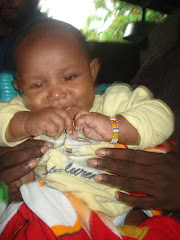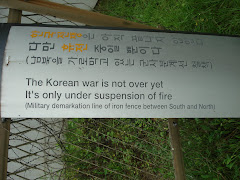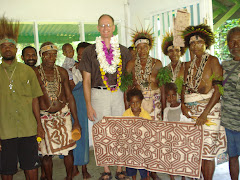 translated the questions and my replies. Trying to nuance the discussion when I don't speak Portuguese was difficult. Br. James had invited me to tour the school where he is Assistant Principal, and we stopped to speak with the Grade Seven Adult Education students, most of whom were in their twenties and thirties, and lived in the nearby favela, or slum. A place too dangerous for us to visit, James said. I tried to let them know most Americans don't get shot at, but it is a lively fear for some in poor urban neighborhoods. And hard to believe if all you see of America is CSI and other crime shows. The US Constitution gives citizens the right to bear arms, so many people have guns in their homes. But as a Franciscan I am horrified by it all, implacably opposed to guns. The same with the materialistic U.S. society. Yes we are a rich nation, but I wonder if it isn't too much so. Franciscan poverty is not the most popular cultural discussion. But the most important thing during the visit to that classroom was goodwill, the chance to share a moment of connection, me saying "obrigado" and them saying "Good evening" and all of us laughing with embarrassment and pleasure at the chance to meet.
translated the questions and my replies. Trying to nuance the discussion when I don't speak Portuguese was difficult. Br. James had invited me to tour the school where he is Assistant Principal, and we stopped to speak with the Grade Seven Adult Education students, most of whom were in their twenties and thirties, and lived in the nearby favela, or slum. A place too dangerous for us to visit, James said. I tried to let them know most Americans don't get shot at, but it is a lively fear for some in poor urban neighborhoods. And hard to believe if all you see of America is CSI and other crime shows. The US Constitution gives citizens the right to bear arms, so many people have guns in their homes. But as a Franciscan I am horrified by it all, implacably opposed to guns. The same with the materialistic U.S. society. Yes we are a rich nation, but I wonder if it isn't too much so. Franciscan poverty is not the most popular cultural discussion. But the most important thing during the visit to that classroom was goodwill, the chance to share a moment of connection, me saying "obrigado" and them saying "Good evening" and all of us laughing with embarrassment and pleasure at the chance to meet.Later we ate dinner with the students and the lunchroom rocked with pulsing salsa music. The school provides free meal and a snack to every student. We got rice, beans, shredded beef (or was it pork? Mystery meat--school lunches are the same in USA and Brazil!) and a chunk of papaya. "Hello! How are you?!" I was greeted over and over by students who'd obviously just been coached. What a great evening.
The next day I visited Templo Zu Lai with a friend. The temple is in Sao Paulo, but over half an hour from the center of town, in a leafy garden suburb. As we munched on vegetarian food we speculated on the popularity of Buddhism among so many middle class Brazilians and Americans. Despite a sign warning against public displays of affection (especially kissing, the sign said), there is a definite interest. Perhaps the emphasis on meditation rather than listening to sermons? The cultivation of a personal meditation practice that can be done either alone or together? The strong emphasis on compassion and awareness? We are both Anglican/Episcopal priests and not inclined to become Buddhists, but our hearts are warmed by what we know of it. And the longing for spirituality we recognize among the Western seekers, we decided, invites us to look again at the things we talk about, to consider how we nurture people in their spiritual journey. The internecine conflicts in Christianity sometimes smother the flame of joy, generosity and compassion we believe God lit in the world with the Resurrection of Jesus from the dead.






No comments:
Post a Comment